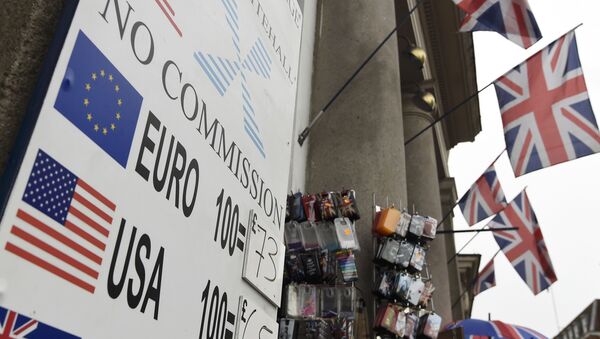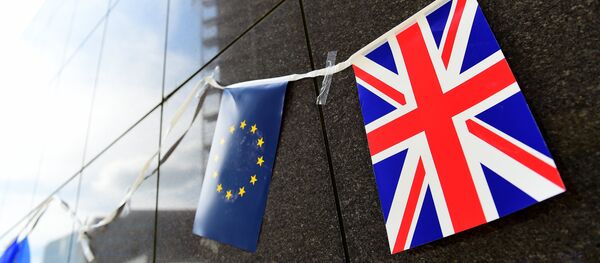Policymakers of the BoE held rates unchanged at 0.5% ahead of the Brexit referendum vote, although the regulator is expecting the British economy to expand persistently in line with the latest acceleration tendencies. However, the UK’s monetary authorities are willing to avoid any additional negative pressures to the overall economic growth.
The BoE said a hike in rates is likely happening within the next two years, however, the regulator’s approach to monetary tightening would depend on macro data, taking international risks and headwinds into account.
“There appears to be increased uncertainty surrounding the forthcoming referendum on UK membership of the European Union,” the BoE said in the minutes of their March policy meeting. “That uncertainty is likely to have been a significant driver of the decline in sterling. It may also delay some spending decisions and depress growth of aggregate demand in the near term.”
The regulator reiterated its perception of the UK’s economy as strong domestically, yet facing severe international challenges, as outlined in the last month’s Inflation Report. The overall BoE approach to monetary policy is thus similar to the of the US Federal Reserve, based on macro data and monitoring of the emerging market situation and commodity prices, the latter being key factor to domestic inflation.
BoE Governor Mark Carney is a supporter of the UK rather staying in the EU than leaving the bloc, as he believes a Brexit would produce unnecessary immediate risks to the UK’s investment appeal and financial stability, whilst any benefits of such a move would take long time to reveal themselves.
However, the ultra-loose monetary policies, exercised in Britain along with other advanced nations during the past several years, seem to hardly have positive effects to the economy any longer. The UK’s real estate sector is overheating, and the financials are sinking in the abundance of investment capital, meaning the UK can actually afford a Brexit without any substantial harm to its economy. Yet, policy alternatives now seem to look this way: it’s either a Brexit, or hikes in borrowing costs.
The Brexit choice would mean the excessive investment capital in the UK’s financials and real estate sectors would likely evaporate, staving off the concerns of hazardous bubbles, yet, growth would slow, limiting the BoE’s scope of monetary response to emerging challenges. The ‘In’ vote, in turn, would allow the BoE to hike rates immediately so that any asset bubbles would be prevented effectively, and while growth targets would remain in place, no harm to the growth outlook would be done by such a decision by the BoE.
Either option has its benefits, whilst any risks can be effectively addressed.
Meanwhile, the BoE is closely monitoring domestic macro data. UK inflation rose to 0.3% in January, and is still below the 2% target, where it has been for past two years. In February, according to Inflation Report, the measure was 0.8% annualized, meaning the growth in prices is picking up. Consequently, “some effect was likely to be present in the current wage data,” the BoE said.
The UK’s financials are expecting a hike in rate this year, suggesting there is little doubt the nation will stay in the EU after the referendum. The recent swings in shares suggest the market ahve already priced the hike in borrowing costs. The pound sterling climbed 0.9% to $1.4385 after the BoE made its announcements, only extending gains to $1.45 later on, meaning a monetary tightening is widely anticipated.




